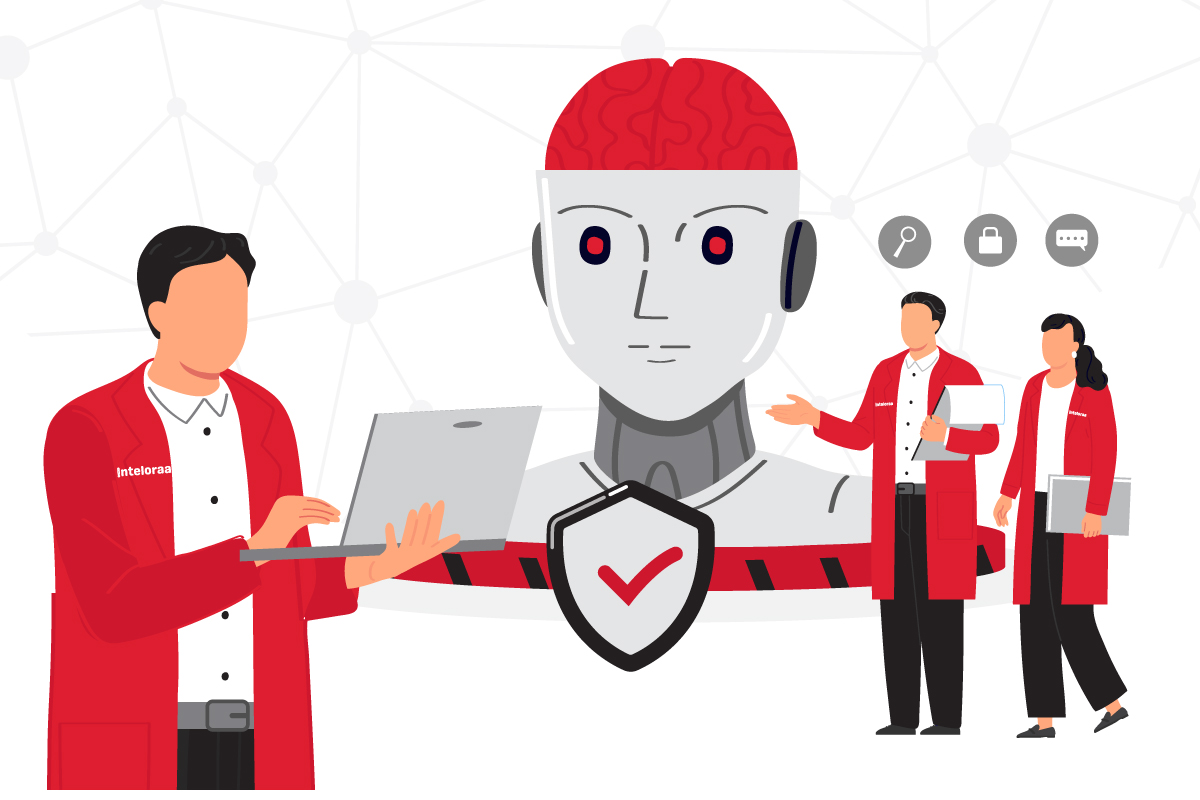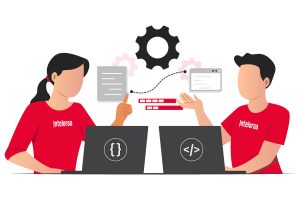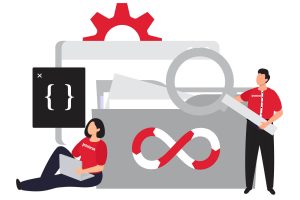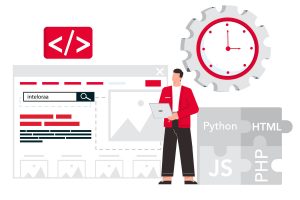The National Importance of AI in Healthcare and Public Safety

Introduction
Think about that moment when something feels seriously wrong — you’re gripped by chest pain, anxiety rising, and all you can focus on is getting to the emergency room as fast as possible. Instead of waiting hours for test results, an AI system analyzes your symptoms, medical history, and vitals in real-time, helping doctors make faster, more accurate decisions. Sounds like science fiction, right? Well, It’s happening right now in hospitals across America.
We’re living through a healthcare revolution that’s quietly transforming how we diagnose diseases, care for patients, and respond to emergencies. From AI spotting cancer cells that human eyes might miss to predicting which patients need immediate attention, artificial intelligence isn’t just changing healthcare – it’s becoming essential to our national health security.
Today, let’s explore how AI is making all of us safer and healthier, and why smart organizations are already investing in these game-changing technologies to serve their communities better.
AI Diagnostics: Faster, Smarter, Life-Saving
Let’s talk about something that touches every one of us — getting an accurate diagnosis when illness strikes. The truth is diagnostic errors are shockingly common: around 795,000 Americans each year suffer permanent harm or death due to misdiagnosis, and studies show an average error rate of 11.1%. It’s time we use every tool available — like AI — to get it right the first time.
But here’s where things get exciting. AI is stepping up to the plate, and the results are honestly mind-blowing. Studies are showing AI achieving impressive accuracy rates, including 93% accuracy in heart disease classification. To put that in perspective, ChatGPT on its own scored about 92 on diagnostic tests – the equivalent of an “A” grade – while physicians in both non-AI and AI-assisted groups earned median scores of 74 and 76.
Think about medical imaging for a second. We’re talking about AI systems that can spot things human eyes might miss entirely. AI systems detect breast cancer in mammograms more accurately than human radiologists, analyzing thousands of images to recognize patterns and subtle changes.
The adoption numbers tell the whole story about where we’re headed. Physician adoption jumped from 38% in 2023 to 66% in 2024, reflecting a dramatic shift as more doctors integrate AI tools into everyday patient care. When doctors are embracing this technology this quickly, you know it’s making a real difference.
What’s truly amazing is that AI isn’t here to replace doctors — it’s here to make them supercharged. With AI insights at their fingertips, physicians boosted diagnostic accuracy by 4.4% — a small number that could save thousands of lives. That might sound small, but when you’re talking about millions of patients, those percentage points translate to thousands of lives saved and countless families spared from devastating misdiagnoses.
Smart healthcare organizations are already partnering with companies developing custom AI diagnostic solutions to integrate these life-saving technologies into their daily workflows.
Revolutionizing Patient Care Through AI
Here’s where AI gets really personal – literally. We’re not just talking about better diagnoses anymore; we’re talking about treatment plans tailored specifically to you. By analyzing large datasets, AI helps identify trends in patient outcomes and predicts which therapies are most likely to succeed for specific individuals, paving the way for truly personalized medicine.
The Remote Patient Monitoring market was valued at $39.54 billion in 2023 and is expected to reach $77.90 billion by 2029 – that’s nearly doubling in just six years! By 2025, an estimated 70.6 million people in the U.S. — nearly 26.2% of the population — will use remote patient monitoring devices, signaling a major shift in how care is delivered.
Virtual health assistants are becoming our 24/7 healthcare buddies. These AI-powered systems can monitor your vitals around the clock, answer basic health questions, and even remind you to take your medications. The U.S. market for health intelligent virtual assistants is projected to hit $1.87 billion by 2030 — a surge driven by rising demand for instant access, 24/7 patient support, and scalable digital health solutions.
Here’s the really cool part: AI is making healthcare safer by preventing dangerous drug interactions and monitoring patient responses to treatments in real-time. Smart healthcare organizations are already integrating these AI solutions into their workflows, creating seamless experiences that put patients first while improving outcomes across the board.
AI in Emergency Response: When Every Second Counts
When it comes to emergencies, we’re talking about life-and-death decisions measured in minutes and seconds. This is where AI proves its true value — not just improving efficiency, but actively saving lives through faster diagnoses, early interventions, and smarter care decisions.
Let’s start with the dispatch side of things. Emergency medical services are dealing with some serious challenges. Distance-related delays make up an average of 43.1% of response delays each year from 2017 to 2022 – that’s a huge problem when every second matters. But AI is changing the game by optimizing ambulance routes in real-time, predicting which areas will need emergency services, and even analyzing social media posts during disasters to help responders act faster.
Something that’ll blow your mind is that AI models can now identify 6,000 abnormal ECG samples with 97% accuracy once they’re familiar with medical data patterns. That means paramedics can get AI-powered insights about heart conditions before they even reach the hospital.
In hospital emergency departments, AI is revolutionizing triage – the process of deciding who needs help first. In a matter of seconds, AI algorithms can predict the risk of several outcomes, recommend a triage level of care, and provide an explanation for the decision. We’re talking about intelligent systems that streamline patient triage, cut down wait times, and make the most of limited hospital resources — a much-needed upgrade for overstretched emergency departments.
Cities like Fort Worth are already implementing AI services that help resolve about 251,000 nonemergency calls annually, freeing up emergency lines for true crises.
Custom software development companies are creating tailored emergency response solutions that integrate seamlessly with existing systems, ensuring that each community’s unique needs are met while maximizing life-saving potential.
The Bigger Picture: National Health Security
COVID-19 taught us a harsh lesson about pandemic preparedness – or the lack thereof. But here’s the silver lining: it also showed us how powerful AI can be in fighting back. During the pandemic, AI played a vital role across multiple fronts — accelerating genome sequencing, speeding up drug and vaccine development, detecting early disease outbreaks, monitoring global transmission patterns, and tracking the emergence of viral variants in real time.
Now we’re building something even better. AI systems can identify patterns in data that signal the onset of epidemics and pandemics, enabling earlier detection and rapid response by governments. Think about it – instead of waiting for hospitals to report overcrowding, AI can spot emerging health threats from social media posts, search patterns, and other digital breadcrumbs.
The financial potential of AI in healthcare is enormous. Broad adoption could reduce U.S. healthcare spending by 5 to 10 percent — translating to annual savings of $200 billion to $360 billion across the system. We’re talking about money that could be reinvested in better infrastructure, more research, and improved patient care.
Smart organizations are already exploring AI solutions that can be implemented at both organizational and national levels, creating resilient healthcare systems that can adapt and respond to whatever comes next.
Challenges and Considerations
Now, let’s be real for a minute – implementing AI in healthcare isn’t all smooth sailing.
While AI adoption in healthcare surges — nearly doubling among physicians in 2024 — it brings significant challenges, especially around privacy. With AI systems often functioning as “black boxes,” tracking how patient data is used becomes difficult, creating complex HIPAA compliance issues and increasing risks during audits.
Then there’s the money factor. Adding basic AI functionality costs around $40,000, while comprehensive custom solutions can exceed $100,000. AI implementation can be very expensive as data infrastructure and computing resources require heavy investment, making it challenging for smaller businesses.
Plus, training healthcare professionals to work alongside AI systems takes time and resources. But the good news is that experienced partners can help navigate these challenges, providing smooth AI implementation and ongoing support to ensure your systems stay compliant, effective, and up-to-date.
Looking Forward
Artificial Intelligence has already begun transforming healthcare, from faster diagnostics to more personalized treatments, and its potential is only growing. The question is no longer whether AI will reshape the industry, but how quickly we can harness its power responsibly.
For healthcare organizations and policymakers, the time to act is now—investing in innovation, setting ethical standards, and ensuring that technology serves both efficiency and humanity. At Inteloraa, we will partner with healthcare organizations to implement intelligent AI solutions that deliver measurable impact. From idea to integration, we’re here to turn today’s innovations into tomorrow’s standards of care — because the future is already here.
Together, we carry the responsibility to ensure that AI drives progress in ways that improve lives, safeguard trust, and set new standards of care for generations to come.
Belayet Riad
Founder & CEO, Inteloraa
Top Rated Freelancer with over 12+ years of experience as a Full Stack Developer, specializing in front-end development and building exceptional digital experiences for modern businesses.
Contact / Request Quote



